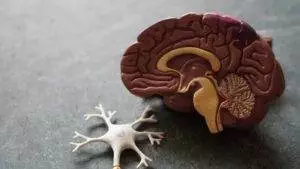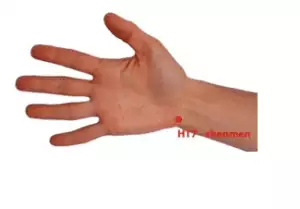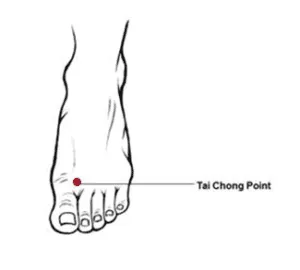-
 Art of Wellness Acupuncture & Traditional Chinese Medicine (TCM)11704 Wilshire Blvd, Suite 295, Los Angeles, CA, 90025
Art of Wellness Acupuncture & Traditional Chinese Medicine (TCM)11704 Wilshire Blvd, Suite 295, Los Angeles, CA, 90025
myartofwellness@gmail.com310-451-5522 Office Hours
MonClosedTue7:30 am --4 pmWed7:30 am --4 pmThu7:30 am -- 4 pmFri7:30 am -- 4 pmSat7:30 am -- 4 pmSunClosedOur office opens from Tuesdays to Saturdays 7:30 am to 4 pm, will be closed on Memorial day, Independent day, Labor day, Thanksgiving day, Christmas and New year.
-
Recent Posts
- Chinese New Year 2026: Year of the Horse
- Acupuncture and TCM Treatment for Perimenopause Symptoms
- How to Treat Insulin Resistance With Acupuncture and TCM
- How to Treat Metabolic Syndrome With Acupuncture and TCM
- How to Treat Syncope With Acupuncture and TCM
- How to Treat Thoracic Outlet Syndrome With Acupuncture and TCM
- How to Treat Dupuytren’s Contracture With Acupuncture and TCM
- How to Treat Nutcracker Syndrome With Acupuncture and TCM
- How to Treat Rosacea With Acupuncture and TCM
- How to Treat Perioral Dermatitis With Acupuncture and TCM
- Lymphatic Drainage With Acupuncture and TCM
- How to Treat Turf Toe With Acupuncture
- How to Treat Nerve Pain With Acupuncture and TCM
- How to Treat Watery Eyes With Acupuncture and TCM
- How to Treat Ovarian Cysts With Acupuncture and TCM
- How to Treat Dystonia With Acupuncture and TCM
- Sign up to receive news and updates and get my free report:“The Top 10 Reasons to Try Acupuncture”

December 2025 M T W T F S S 1 2 3 4 5 6 7 8 9 10 11 12 13 14 15 16 17 18 19 20 21 22 23 24 25 26 27 28 29 30 31
Stress & Anxiety
What is Multiple Sclerosis and How to Manage MS with TCM & Acupuncture
Multiples Sclerosis is autoimmune disease, Traditional Chinese Medicine & Acupuncture are very helpful to improve these condition.
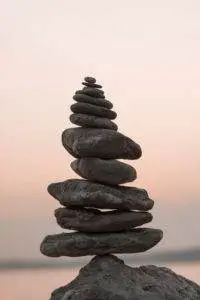
Dr.Tan’s Case and Testimony
Mr. M- a healthy 50-year old Caucasian gentleman—first visited my office Art of Wellness Acupuncture a few years ago. As an attorney, he had been working very hard to support his two daughters, who were both in college. About four months ago, the onset of serve lower back pain along with tingling in his left leg changed his life completely. He saw several doctors, had a number of x-rays and an MRI which revealed a moderate bulging disk on L4-L5. He tried different pain pills, NSAIDs, and underwent three months of physical therapy, none of which had helped. Recently, he had been experiencing numbness and weakness in his left leg, and was suffering from depression due to his inability to carry on with daily work and regular activities. When he talked to me, I noticed that he constantly rubbed his eyes. I asked if he felt any abnormalities in his vision. He answered yes, and that he had periodic occurrences of blurred vision. When I suggested that he showed me how he walks, I noticed his poor balance. He tended to fall on his left side because his left leg did not seem to follow his motion. Then I checked his knee and ankle reflex and found that they were excessively active. I was almost certain that the condition that made him suffer so much in the last few months was not a simple bulging disk or sciatica; it was a disorder of the central nervous system-Multiple Sclerosis. Immediately, referred him to a neurologist and suggested that he have a brain and cervical MRI. Two weeks later, he came back to my office with a confirmed diagnosis of Multiple Sclerosis.
Mr. M. is just one of 200 patients who are diagnosed with MS every week in the United States. There are about 400,000 people in the U.S. and 2.5 million patients who are suffering from this disease in the world.
Cause of MS
MS is an autoimmune disease in which infections or environmental changes can confuse the body’s defense system. Sometimes a foreign antigen mimics a group of the body’s own proteins. When the immune system response by mounting an attack against these foreign invaders, it inadvertently destroys the foreign antigen along with any similar antigens, including the body’s own tissues.
A recent study shows that a virus called adenovirus type 2 looks remarkably similar to the composition of the protective covering around the spinal cord and parts of the brain—the myelin sheath cells. The attacks of the immune system of this virus along with the mistaken attack on the myelin sheath is believed to be the ultimate cause of multiple sclerosis。
Common symptoms of MS
- numbness or tingling, usually in the leg or arm
- muscle weakness
- dizziness
- spasticity
- pain (moderate to severe)
- Ataxia
- Tremor
- Slurred speech
- Blurry, double vision or blindness
- bladder malfunction
- bowel dysfunction
- sexual dysfunction
- depression
- euphoria
- cognitive abnormalities
- fatigue
Most commonly, MS first manifests itself in a series of attacks followed by complete or partial remission as symptoms mysteriously lessen. These symptoms, however, will return later after a period of stability. This is called relapsing-remitting (RR) MS.
Treatment of MS
Unfortunately, there is no cure for MS yet. In Western Medicine, the treatment focuses mainly on decreasing the rate and severity of relapse. Beta interferons, anti-cancer drugs (to weaken the immune system), and steroids are commonly used for the treatment of MS. These medicines can reduce the number of MS lesions, delay the progression of the disease, and provide symptomatic relief for the patient.
In TCM, a condition called “Wei Syndrome” with symptoms similar to MS, was documented 2000 years ago in a classic Traditional Chinese Medicine book called Emperor Classic Medicine. Acupuncture and Traditional Chinese Medicine has been involved in the treatment ever since. MS patients who have tried acupuncture report improvement in pain, spasticity, numbness and tingling, fatigue, depression, anxiety, and bowl, bladder function.
Maintaining a healthy lifestyle is very important for the MS patient. This includes:
- Getting enough time to sleep and rest. Go to bed early
- Exercise regularly. Tai Chi and Yoga are very good to help patient relax, balance and with muscle strength
- Balanced diet, a lot of vegetables and enough protein from white meat
- Stress management
- Daily meditation and positive thinking
- Staying connected with friends and joining a support group
- How to reduce and prevent inflammation
Patient Story- Gilly
I was diagnosed with Relapsing Remitting MS in 1991 and I had no idea what a crazy, unpredictable journey I was about to embark on.
I woke up one morning, tried to get out of bed but my legs were like jello, I had no balance and had double vision.
I was given a spinal tap and MRI and lesions were detected on my brain & cervical spine.
When first diagnosed, my neurologist put me on one of the few FDA approved medicines for MS which don’t cure the disease, but delay the progression. For that I inject myself daily and have done so for 17 years
For the first 7 years after being diagnosed, I experienced relapses (flare up of symptoms) on average twice a year. The treatment for relapses was a 5 day course of steroids administered through IV, followed by 12 days of oral steroids.
The relapses affected my motor skills the most, especially walking but after a treatment of steroids, I was almost as good as new.
My friends suggested I try acupuncture. I was recommended to Dr Tan because he had studied MS in China. *
Dr Tan has been monumental in my life. He has given me treatments for a multitude of injuries I’ve suffered over the years due to frequent falls and is an expert in pain relief. He treats me for stress relief which contributes my general wellbeing. Dr Tan is very knowledgeable about Western medicine and MS treatments so I always ask his opinion.
I’ve been diagnosed with MS for 21 years and feel fortunate that Dr Tan has been treating me for a large part of that time. Although I partake in Western medicine, I know that Western medicine only treats the symptoms but Eastern medicine treats the cause of the symptoms.
My MS has progressed to the stage that I now use a wheelchair full time.
I go to acupuncture for preventative care. My immune system needs extra help especially during cold & flu season.
I am very aware that MS is a ‘designer’ disease, and no two people have the exact same symptoms. I would encourage anyone with MS to avoid stress, keep up a healthy immune system and try to stay positive and happy, because your emotional state affects your physical being.
How to Sleep Better with Acupuncture and TCM
By Qineng Tan, L.Ac., Ph.D.
Do you suffer from insomnia or do you have trouble falling asleep and staying asleep? Acupuncture and Traditional Chinese Medicine (TCM) offers many solutions on how to sleep better without sleeping aids. TCM stresses the importance of getting a good night sleep. Chinese medicine has tools such as; exercise, Chinese herbal medicine, acupuncture, and meditation all which can help you get a good sleep so you can function at the highest potential throughout the day. Below you will read about TCM and the history it provides in regards to sleep and the many tips that can help you get the best sleep tonight.
History of Sleep with TCM
Sleep is a part of the interplay of yin and yang: yang energy is dominant when we are awake and active, and yin energy rules sleep. Night is yin; daylight is yang. This is all in keeping with the holistic, universal nature of TCM (Traditional Chinese Medicine) theory. Our bodies are designed to work with the movements of the earth, sun, and moon. When a person experiences insomnia, either hard to fall asleep or wake up often then difficult to fall back to sleep, there is a lack of balance. The body is out of sync with its environment. The yang energy is taking over, or not interplaying with yin appropriately.
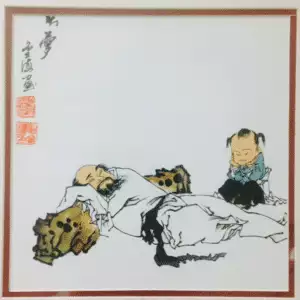
In TCM terminology, “Shen” is the spirit, the energy which controls our mental activities and thought. During sleep, Shen “hides” in the organs – predominantly the Heart and the Liver – resting, so that it can function with sharpness during our waking hours. Insomnia, in TCM, is often viewed, then, as a problem of the Heart system, or the Liver system. If one of these major organs is unable to “house” the Shen, then the Shen will wander restlessly, causing sleeplessness.
Protective Qi cycles through the body continuously, but it follows different paths along the meridians at different times of the day and night. During the day, protective Qi, which fights off pathogens, moves through the yang meridians, and during the night, it flows through the yin meridians. If you find yourself waking up at a particular hour in the middle of the night every night – or feeling sluggish at one particular time every day – it is probably related to some deficiency of Qi in that area.
Between the hours between 1:00 and 3:00 a.m. the liver meridian is actively supplying Qi to the liver system so that it can clean toxins from the blood. Then, between 3:00 and 5:00 a.m., the freshly cleaned blood and energy is being delivered to the organ systems. It is especially important to be sleeping soundly during that time. The liver does all the heavy lifting of cleaning and detoxifying the blood and therefore, the whole body. If the liver is stinted of its full rest and rejuvenation, night after night, we can be left feeling truly sick and tired.
Sleeplessness may be the central problem for some people; for others, it’s just a part of the big picture. Many people have gone so long without restful sleep that they have become used to it and just consider it their new “normal.” When you come in to Art of Wellness for a visit, our doctors will ask many questions to get a sense of what kind of sleep problems you’re having, including other symptoms that may be related to the same root issue.
- Having trouble falling asleep may be related to an excess condition of the liver and/or gall bladder.
- Waking easily and then having trouble falling back to sleep may point to a deficiency of the Heart Yin or too much internal heat.
- Nightmares may indicate a gall bladder meridian problem, while repetitive, literal dreams (about work, for example) might indicate a heart/spleen problem.
Sleep problems can be related to other conditions, such as depression, menopause in women, fibromyalgia, chronic fatigue syndrome, and cardiovascular disease.
How to Make Winter A Time of Rest and Renewal
Getting a good night sleep is always important, but in the Wintertime. Nature and our bodies are really asking us to rest more, and more deeply, than we do during other times of the year. This is a time for the body to store energy. If we go at a frantic pace, and behave the same way we do in the middle of summer, we will become depleted.
Unfortunately, our current culture does not necessarily support this idea. It seems we are asked to do more and be more than ever during the rush of the winter holiday season. It really is vital to prioritize “doing less” in order to preserve good health.
People with sleep problems seek tips for help. The practices in acupuncture and TCM help you to be calm. Visit the link and read some TCM tips for sleep.
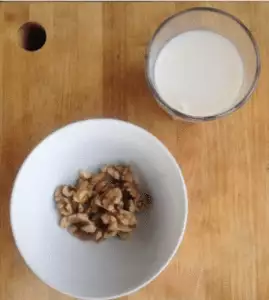
Top 20 Tips For Creating Calm so That You Can Get A Good Sleep
- Choose carefully how many social commitments you make. You don’t have to attend every gathering – only the ones that are meaningful to you. If it feels more like an obligation than fun, make a plan to stop in, extend your greetings, and then leave early. This way, you won’t overeat, drink too much, and you can still get to bed a reasonable hour
- Don’t exercise too vigorously close to bedtime. An evening walk, or gentle program of Tai Qi or yoga will help you work out excess energy with stimulating you further
- Deep breaking techniques: using you lower abdomen, inhale deeply. Hold it for about 5 seconds, and then exhale slowly through your mouth. Repeat ten times. Deep breathing exercises not only relax your mind, but they help to dispel negative Qi from the body before bed
- Create an oasis of calm in your bedroom, with good ventilation, restful colors and no devices. Set a time, half an hour to hour before going to bed, when you will discontinue watching TV or looking at your computer and phone. The light stimulus from the screen is not helpful for falling asleep. Reading a book, writing in a journal, coloring in a coloring book, are all activities that help you wind down for the night.
- Change your eating habits: many people wake up around 3 AM and find it difficult to fall back asleep. This may be cause by low blood sugar level due to the over activity for the adrenal gland. For a better sleep, try to balance your blood sugar level daily by eating small portions of food about every 3 hours and drinking a glass of warm, low fat milk or eating a handful of nuts—such as raw walnuts or almonds, before bedtime. It helps to balance your blood sugar. Waking up in the middle of the night can be caused by fluctuating insulin levels – the result of too much sugar or alcohol in the evening.
- Keep your feet warm by soaking them in hot water for 15-20 minutes before bedtime. Also, massaging the bottom of the feet can help to stimulate key kidney points. Give a good, fast rub to the center of your soles for a few minutes to warm them while getting into bed.
- Stimulating acupressure points just before bedtime can be helpful. Use your thumb or fingertip to apply moderate pressure and rotate clockwise for 2-3 minutes.
- Shen Men, called the “Spiritual gate” point, releases heart fire, excitement, anger, irritation and anxiety.
- Tai Chong, a liver point can help alleviate insomnia due to excessive heat or stagnation in the liver, which can cause feelings of depression, stress, sadness.
- Take off any constricting clothing (underwear), and wear loose, comfortable pajamas for bedtime.
- There is an old saying: “sleep like the crescent moon.” Sleeping in a fetal position on your right side puts your heart above your liver, which helps drain blood, giving the heart some relief and extra nourishment to the liver. It also helps food move through your digestive system properly.
- Keep away from interruptions: Turn off your phone after dinner or keep a note book by your bed. If you keep thinking about sometime important to do, write it down.
- Listen to calm and relaxing music
- Sleep and wake at the same time every day, yes that includes weekends. Do not stay in bed for too long even when you do not have to go to work. Your body needs to have a regular sleep-wake cycle in order to function at its maximum

Shen Men Point - Reduce the water temperature for baths and showers: when the water temperature is well about body temperature, your body heat increases. Then when you get out of the water, your body heat decreases. Try to avoid such fluctuation of the body temperature.

Tai Chong Point - Keep your bedroom simple and clean: limit the number of electronic devices such as TV’s, computers from your bed room
- Do not play video games at night
- Obey the 20-minute rule: if you do not successfully fall asleep in twenty minutes, get up and do something else until you feel tired and ready to sleep again.
- Waterfall Meditation. In this exercise, imagine yourself at the base of a waterfall. As you breathe in and out, picture the water gently raining down on you, trickling down each route until the tension inside you releases, allowing your entire body to enter a peaceful and relaxed state.
- Oneness Meditation. Just as in the Waterfall exercise, picture yourself standing beneath a waterfall. This time, however, instead of relaxing parts of your body one section at a time, allow your entire body to relax simultaneously. Let the image of the water wash away any stress or anxiety that burdens you.
If you have tried all of these things are still not sleeping well, please come see us to find the underlying problem. Acupuncture and herbs can help address and correct deeper issues that are affecting your ability to find rest and peace. If you find you are experiencing insomnia or any other sleep disturbance, seek out solutions. Left unaddressed, a sleep problem can become chronic and debilitating. Talk to us, so we can help you pinpoint and fix the problem with lifestyle adjustments, acupuncture treatments, and herbal formulae.
